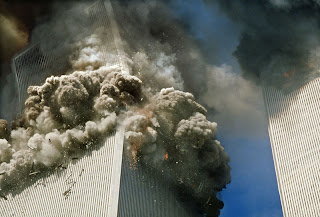The Sign for Drowning
By Rachel Stolzman
Published by Trumpeter Books
Published 2008
ISBN: 978-1-59030-720-5
This book was sent to me as a review copy by the author who also sent me a signed copy to use as a giveaway (which is only open until midnight Monday 30th November so get your entries in now, people!!)
This book is a visceral and very real look at the life of a woman whose life has been defined by the loss of her baby sister, Megan, through accidental drowning when she was 8 years old. Anna has, since that day, been lost in a world of uncertainly and grief, ever searching for someone or something to anchor her in the world. After meeting Adrea, a deaf child who was abandoned by her teenaged parents, in her centre for deaf children, Anna's life seems to take on a new meaning but grief still looms large, refusing to leave her family in peace.
I really enjoyed this novel - the narrative is beautifully written, reflecting Stolzman's poetic background, but without being overly lyrical - I'm a fan of a well-written sentence or a beautiful image but I hate being beaten over the head with a metaphor. It's a fine line and one that Sign balances brilliantly. For example, one of my favourite sentences was this stunner:
"She saw herself, a baby mermaid, hair streaming back, a last oxygen bubble escaping from her mouth. There were monsoon rains with every turn of her neck. Earthquakes broke fault lines with each kick of her legs. Every thrashing of her arms brought forest fires somewhere. Opening her mouth caused volcanoes to erupt.
In this way, she left us." (Page 62)
Mother-daughter relationships lay at the heart of this novel as it is this relationship, both as the daughter and later the adoptive mother, that define Anna. Stolzman investigates this most emotionally fraught relationship with both delicacy and a clear eye, enabling the reader to see both Anna and her own mother as both mothers and a flawed human beings - something not easily achieved as too often portrayals of mothers become one dimensional or fall into the perfect mother/evil mother dichotomy.
The only regret I had about this book was that it wasn't longer - I felt that there were places in the novel that could have been lingered over a bit more, even if only for the reader to absorb what had happened but it felt occasionally as if we were being hustled along. This doesn't really detract from the novel - just at times I wish I'd had a bit more space and time within it to really enjoy what was happening.
Overall, I loved this novel. It is beautifully written and a thoroughly enjoyable first novel. It takes on some very big issues and handles them with finesse and intelligence. Thoughtful and thought-provoking, this is one I would highly recommend that you read. It's one that will stay with me for a long time.
Image credit: Here




















